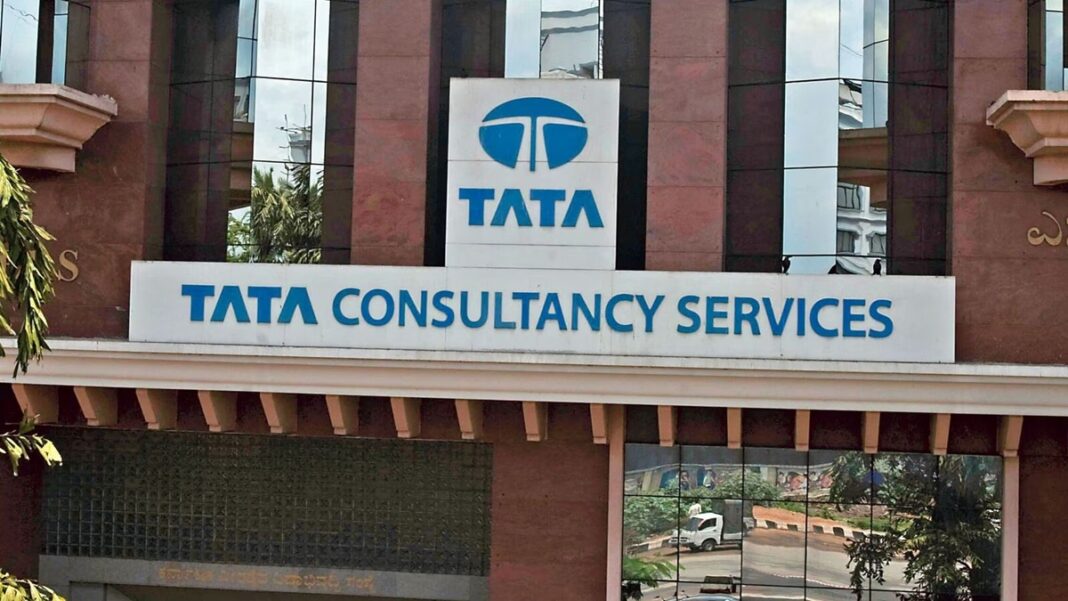X: @the_news_21
A recent report by the Wall Street Journal has shed light on allegations made by a group of American workers against Tata Consultancy Services (TCS), a prominent Indian IT firm. According to the report, at least 22 American employees have filed complaints with the US Equal Employment Opportunity Commission (EEOC), accusing TCS of discriminatory practices based on race and age.
The former TCS employees, who were laid off, represent a diverse range of backgrounds, including Caucasians, Asian-Americans, and Hispanic Americans. Their ages range from their 40s to their 60s, and they reside in various states across the US. Many of these individuals hold advanced degrees, such as MBAs, further highlighting their qualifications and expertise.
The complaints allege that TCS terminated their employment abruptly and replaced them with workers from India on H-1B visas, which are designed for skilled foreign workers. This has sparked concerns among American professionals about being unfairly targeted based on their age and ethnicity, with accusations of TCS providing preferential treatment to Indian workers.
In response to these allegations, a spokesperson for TCS refuted the claims of unlawful discrimination, deeming them “meritless and misleading.” The company asserts that it upholds equal opportunity employment practices and operates with integrity in its operations, maintaining a strong record as an employer in the US.
The controversy surrounding TCS’s use of H-1B visas raises broader questions about visa policies and their implications for American workers. While companies like TCS leverage these visas to recruit skilled foreign talent, concerns have been raised about the displacement of American workers by foreign employees who may be willing to work for lower wages.
It’s worth noting that companies sponsoring H-1B visas for foreign workers are not obligated to demonstrate a lack of qualified American candidates for the positions. TCS, which boasts a significant workforce in India, generates a substantial portion of its revenue from North America, but employs a comparatively smaller workforce within the US.
The filing of complaints with the EEOC underscores the seriousness of the allegations, as discrimination in the workplace carries federal consequences. As the investigation unfolds, it remains to be seen how TCS and other Indian IT firms navigate the complex terrain of visa regulations and workforce management while ensuring fair treatment for all employees.








can you get cheap clomid online buy generic clomid without prescription can you buy generic clomiphene without insurance where can i get generic clomid tablets where to get clomid no prescription can you buy cheap clomiphene without insurance can i buy generic clomid price
More articles like this would make the blogosphere richer.
This is the amicable of topic I get high on reading.
zithromax 500mg price – floxin 400mg cost flagyl for sale online
semaglutide pill – generic periactin 4 mg periactin order
domperidone uk – purchase domperidone pill order cyclobenzaprine 15mg
Your point of view caught my eye and was very interesting. Thanks. I have a question for you.
medex oral – https://coumamide.com/ purchase hyzaar online
mobic generic – mobo sin order mobic pill
deltasone 20mg generic – https://apreplson.com/ buy generic deltasone 5mg
new ed drugs – https://fastedtotake.com/ can i buy ed pills over the counter
purchase amoxicillin sale – https://combamoxi.com/ order amoxicillin sale
forcan brand – this buy diflucan 200mg online cheap
buy cenforce 100mg online cheap – https://cenforcers.com/ cost cenforce 100mg
cialis tadalafil 10 mg – https://ciltadgn.com/# buy cialis online usa
generic cialis 5mg – online cialis no prescription cialis prostate
ranitidine over the counter – order zantac generic buy ranitidine
viagra sale europe – viagra 50 mg price walgreens viagra 100 mg prices
Greetings! Jolly serviceable advice within this article! It’s the petty changes which liking espy the largest changes. Thanks a portion quest of sharing! https://gnolvade.com/
Thanks on sharing. It’s outstrip quality. https://ursxdol.com/ventolin-albuterol/
The thoroughness in this section is noteworthy. https://aranitidine.com/fr/acheter-cialis-5mg/
Thank you for your sharing. I am worried that I lack creative ideas. It is your article that makes me full of hope. Thank you. But, I have a question, can you help me?
I couldn’t hold back commenting. Adequately written! https://ondactone.com/product/domperidone/
Greetings! Extremely productive par‘nesis within this article! It’s the scarcely changes which liking espy the largest changes. Thanks a portion in the direction of sharing!
https://proisotrepl.com/product/cyclobenzaprine/
I couldn’t hold back commenting. Warmly written! http://iawbs.com/home.php?mod=space&uid=914823
buy generic orlistat over the counter – buy cheap orlistat orlistat 120mg oral
I couldn’t weather commenting. Warmly written! https://sportavesti.ru/forums/users/srnqt-2/
I don’t think the title of your article matches the content lol. Just kidding, mainly because I had some doubts after reading the article.
You can keep yourself and your dearest nearby being alert when buying panacea online. Some pharmacopoeia websites operate legally and offer convenience, reclusion, rate savings and safeguards over the extent of purchasing medicines. buy in TerbinaPharmacy https://terbinafines.com/product/haldol.html haldol
I am in truth happy to glance at this blog posts which consists of tons of useful facts, thanks representing providing such data. prix du viagra
More posts like this would persuade the online time more useful.
Đến với J88, bạn sẽ được trải nghiệm dịch vụ cá cược chuyên nghiệp cùng hàng ngàn sự kiện khuyến mãi độc quyền.
搭载智能站群程序,自动化搭建与管理,为SEO项目提供核心驱动力。站群程序
Khám phá thế giới giải trí trực tuyến đỉnh cao tại MM88, nơi mang đến những trải nghiệm cá cược thể thao và casino sống động.
搭载智能站群程序,自动化搭建与管理,为SEO项目提供核心驱动力。站群程序
Đến với J88, bạn sẽ được trải nghiệm dịch vụ cá cược chuyên nghiệp cùng hàng ngàn sự kiện khuyến mãi độc quyền.
Khám phá thế giới giải trí trực tuyến đỉnh cao tại MM88, nơi mang đến những trải nghiệm cá cược thể thao và casino sống động.
Can you be more specific about the content of your article? After reading it, I still have some doubts. Hope you can help me. https://accounts.binance.com/si-LK/register?ref=LBF8F65G
betmgm Missouri mgm bets promo mgm sportsbook promo
Indulge in the glamour of high-stakes gaming from home. crown coin casino provides cryptocurrency options for fast transactions. Experience the rush and reap the rewards!
Get ready for sugary chaos in Sweet Bonanza — the slot that pays everywhere! Multipliers sweet bonanza candyland stack during bonuses for jaw-dropping wins. Play free or real money now!
Can you be more specific about the content of your article? After reading it, I still have some doubts. Hope you can help me.
chumba casino slots — free to join, thrilling to play, rewarding to win. Claim your welcome Sweeps Coins and experience social casino done right. Play today!